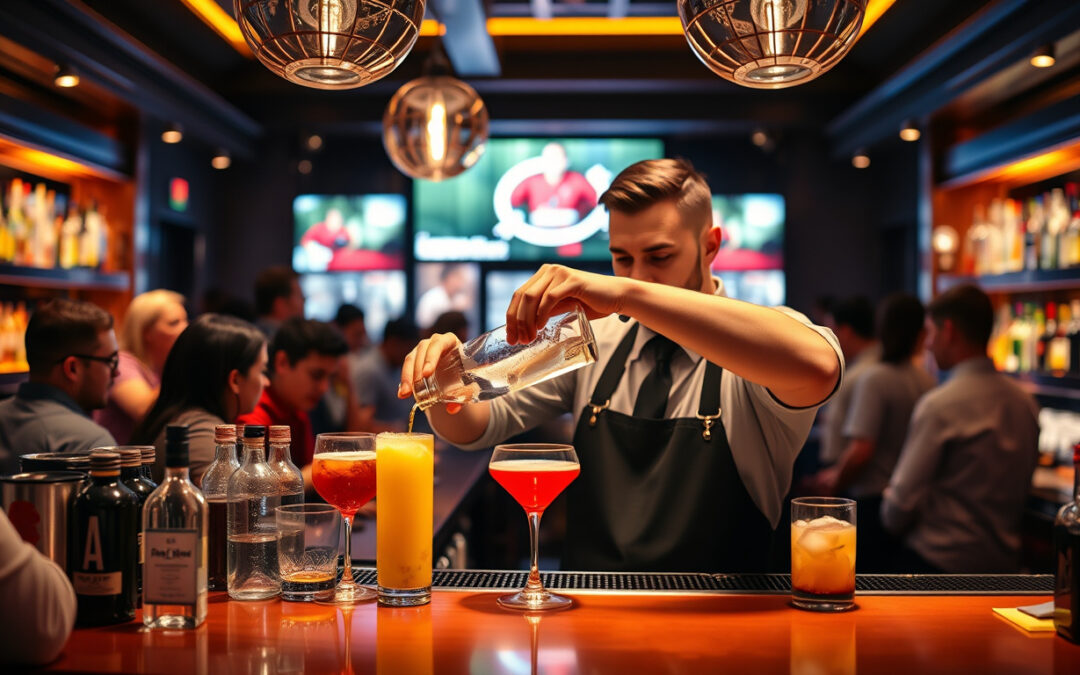In the hospitality and alcohol service industries, ensuring responsible service is paramount. However, one common challenge that establishments face is over-service—serving guests more alcohol than is responsible or permissible. Recognizing the signs of over-service, understanding its impacts, and implementing effective prevention strategies can protect both patrons and the establishment from serious consequences.
This article delels into what over-service entails, how to identify its signs, the potential impacts it can have, and practical ways to prevent it.
What Is Over-Service?
Over-service refers to the act of providing a guest with more alcohol than is socially, legally, or ethically appropriate. It often occurs in bars, restaurants, and events when servers or bartenders continue to serve a guest who is visibly intoxicated or exhibiting signs of excessive drinking.
While providing excellent customer service is essential, responsible alcohol service has clear limits. Over-service not only endangers the health and safety of the guest but also exposes businesses to legal liabilities, reputational damage, and financial penalties.

Signs of Over-Service
Identifying when over-service occurs is critical for responsible establishments. The signs of over-service include:
- Physical Signs of Intoxication: Slurred speech, unsteady gait, bloodshot eyes, or flushed cheeks.
- Behavioral Changes: Aggressiveness, overfamiliarity, loudness, or inappropriate conduct.
- Guest Requests: Asking for additional drinks repeatedly despite evident intoxication.
- Impaired Judgment: Guests having difficulty following conversations or showing poor decision-making related to alcohol use.
- Visual Clues from the Server: Noticing that the guest is no longer engaging with the environment responsibly.
Tip: Train staff to recognize these signs early to prevent over-service before it escalates.
Impacts of Over-Service
Over-service is not merely a matter of etiquette but has serious repercussions. The impacts can be categorized into legal, health, and business consequences.
1. Legal & Liability Issues
Serving an intoxicated guest can lead to the establishment being held legally accountable if the guest causes harm—such as accidents, injuries, or DUI incidents. Many jurisdictions have strict liability laws requiring responsible alcohol service; failure to comply can result in fines, license suspension, or even closure.
2. Health and Safety Risks
Over-service significantly increases the risk of alcohol poisoning, accidents, and injuries. It also contributes to long-term problems like alcohol dependence. The well-being of patrons should always be a top priority.
3. Reputational Damage and Business Losses
Incidents resulting from over-service can tarnish an establishment’s reputation. Negative publicity, damage to community trust, and loss of customer loyalty are common business consequences.
4. Increased Insurance and Legal Costs
Legal actions resulting from over-service-related incidents may lead to costly settlements or insurance claims, affecting the financial health of the business.
How to Prevent Over-Service
Prevention is always better than dealing with the fallout after an incident occurs. Here are effective strategies to prevent over-service within your establishment:
1. Implement Responsible Service Policies
Create clear, written policies for alcohol service that emphasize legal compliance and responsible drinking. Ensure all staff are trained and regularly refreshed on these policies.
2. Train Staff Effectively
Regular training should cover:
- Recognizing signs of intoxication
- Proper ways to refuse service tactfully
- Legal responsibilities and penalties for over-service
- Procedures for handling difficult situations
3. Use Recognition Techniques
Encourage staff to observe patrons for signs of intoxication and communicate concerns professionally.
4. Set Serving Limits
Limit the number of drinks served at one time, and avoid refilling cups or glasses excessively.
5. Offer Alternatives to Alcohol
Provide non-alcoholic options, promote food consumption to slow alcohol absorption, and encourage responsible drinking habits.
6. Use Technology
Employ point-of-sale systems with built-in alerts for serving limits or for flagging guests who have consumed multiple drinks.
7. Foster a Responsible Drinking Environment
Create an atmosphere that discourages excessive drinking—such as social activities that do not revolve solely around alcohol.
8. Zero Tolerance Policy
Enforce strict policies against over-service, with clear consequences for violations, including potential disciplinary actions.
Practical Steps Chart for Preventing Over-Service
| Step | Action | Purpose |
|---|---|---|
| 1 | Conduct staff training | Educates on signs of intoxication and legal responsibilities |
| 2 | Establish serving limits | Controls alcohol intake per guest |
| 3 | Monitor guest behavior | Provides early detection of over-service signs |
| 4 | Refuse service tactfully | Prevents worsening over-intoxication |
| 5 | Promote food & non-alcoholic drinks | Slows alcohol absorption and offers alternatives |
Legal Considerations and Responsibilities
Responsibility ultimately rests with the establishment and its staff to ensure responsible alcohol service. Many jurisdictions require servers to complete responsible beverage service training programs. For example, in the United States, the TIPS (Training for Intervention Procedures) program is widely recognized for training staff to prevent over-service and underage drinking (source).
Moreover, establishments must adhere to local laws, which can vary significantly. Failure to do so can result in legal penalties, including fines, license revocations, and criminal charges.
FAQ Section
Q1: What are the common signs of over-service in a hospitality setting?
A: Common signs include slurred speech, difficulty walking, loud and aggressive behavior, and requests for multiple rounds despite clear intoxication signs.
Q2: How can a bar or restaurant prevent over-service?
A: Implement responsible service policies, provide staff training, recognize intoxication signs early, set serving limits, and promote a culture of responsible drinking.
Q3: What are the legal consequences of over-service for an establishment?
A: Legal consequences may include fines, license suspension, lawsuits, and increased liability if a guest causes harm after over-service.
Conclusion
Understanding over-service and its potential consequences is crucial for any alcohol-serving establishment committed to safety and legality. Recognizing the signs, actively preventing over-service, and fostering a responsible drinking environment can save lives, protect your business, and uphold your establishment’s reputation. Remember, responsible alcohol service is not just a legal obligation; it reflects a commitment to social responsibility and customer well-being.
By integrating comprehensive training, clear policies, and proactive monitoring, establishments can effectively prevent over-service and promote a safer, more enjoyable experience for all patrons.


